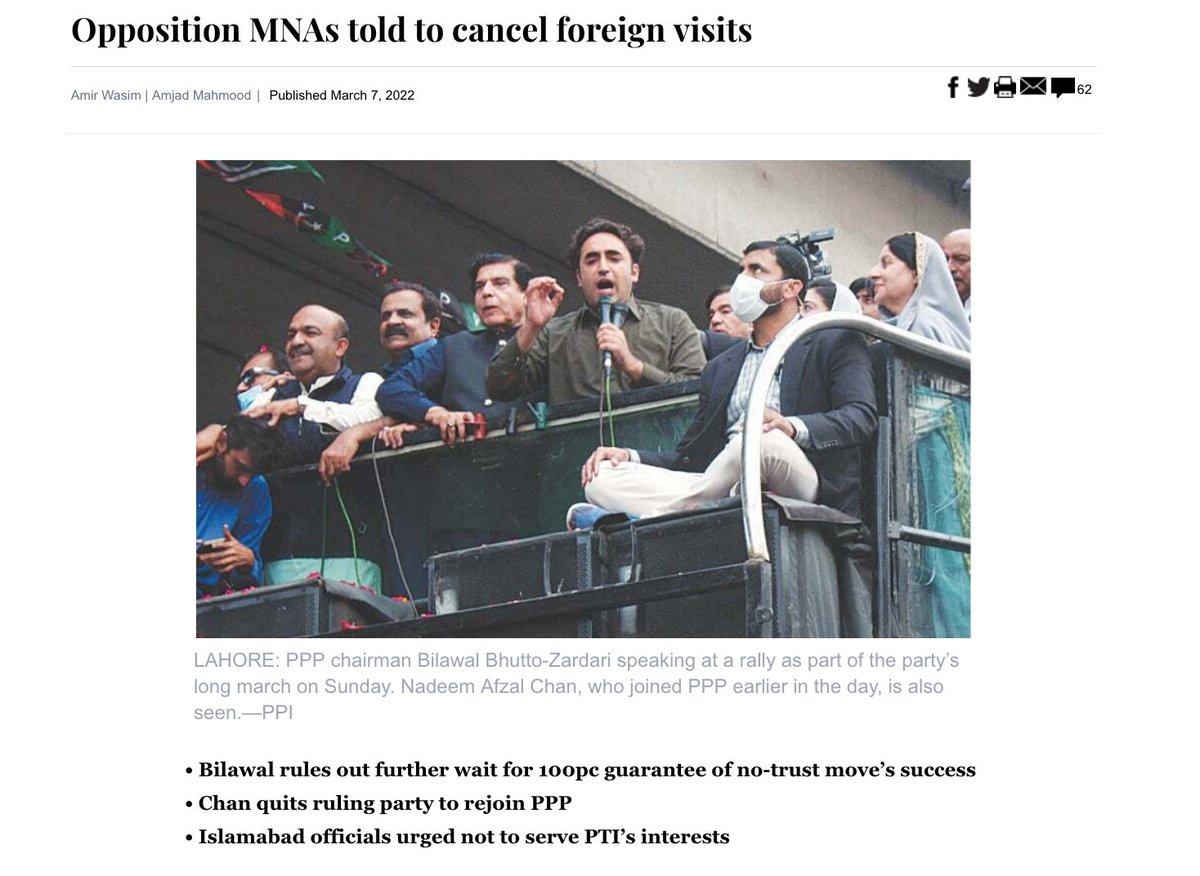A thread on the cipher. The framing (and headline) of the Intercept article is pretty misleading. It makes it seem like the process was: Imran Khan firmly in power, his stance on Ukraine pisses US off, they institute regime change. That’s not really what happened though.
The parliamentary no-confidence motion against IK was in the works for a while. It was openly being discussed + strategized over. The only unknown was when it would happen and how many votes PDM would get. But the die was already cast by then. IK was done, just a matter of time.






The cipher, which is not even an American document but a Pakistani one, does not suggest US was pushing for regime change, only that it would be happy/happier when it happened. There is a significant difference between those positions.
Bajwa was going to get rid of IK regardless of that meeting. If Army wants something but US doesn’t (e.g. Benazir or her dad being killed), it happens. If Army doesn’t want something but the US does (e.g. fighting the Taliban), it doesn’t happen. So army, not US, is key.
What makes this cipher seem really sinister is that this meeting was private. But much the same message (re: Ukraine) was being delivered in public. There is no conspiracy here. Everything was open.




I don’t doubt the authenticity of the cipher. But the article about it is misleading. I found it quite strange that it interviewed only one expert, Arif Rafiq (who I know and whose views I generally respect). Doesn’t strike me as typical practice for such articles.
All this leaves aside the advisability, from US perspective, of pressuring middle/regional powers to support (its position in) Ukraine. Not sure that’s especially wise or even coherent (e.g. US leaves India alone when it buys Russian oil) but that’s a thread for another day.
• • •
Missing some Tweet in this thread? You can try to
force a refresh

 Read on Twitter
Read on Twitter



